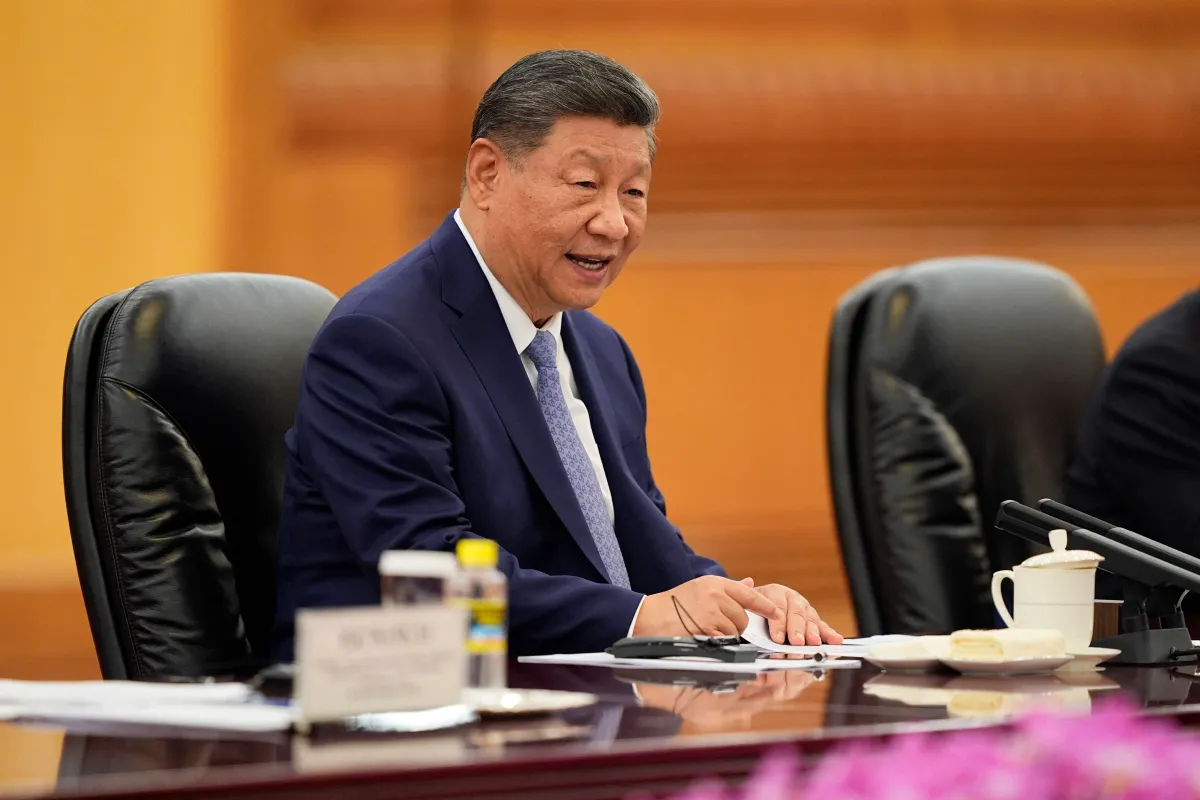
Chinese President Xi Jinping has called for the promotion of “law-based governance” under the leadership of the ruling Chinese Communist Party (CCP) and for concerted efforts to break new ground in advancing the rule of law in China, state media reported.
Why It Matters
The internal workings of Xi’s leadership and the CCP are notoriously opaque, but the announcement on the rule of law can be seen to highlight the primacy of two of Xi’s core objectives: political stability with him and the party at the center of power and the promotion of his ideology for guiding the country’s development.
What To Know
Xi, who is chairman of the CCP, highlighted at a recent party conference “the necessity of safeguarding and promoting social fairness and justice, and comprehensively advancing rule of law in all aspects of the country’s work,” the state-run People’s Daily newspaper reported on Tuesday.
“Xi emphasized that a framework for promoting law-based governance on all fronts has basically taken shape, the system of socialist rule of law with Chinese characteristics continues to improve, and the path of socialist rule of law with Chinese characteristics is becoming broader,” the newspaper said.
The People’s Daily did not mention corruption, but Xi said early this year that graft was the biggest threat to the CCP.
Xi launched a sweeping anti-corruption campaign after taking the leadership of the CCP in 2012. Since then, investigations have been launched into more than 4 million members of the 99-million-strong party, spanning low-ranking “fly” officials to high-ranking “tigers.”
Many observers have suggested that Xi, now in his historic third term, has used the anti-corruption crackdown to eliminate rivals and further entrench himself at the center of China’s political hierarchy.
That effort to root himself at the center of power includes the promotion of his ideology, known as “Xi Jinping Thought on Socialism With Chinese Characteristics for a New Era,” which was formally enshrined in the constitution in 2018.
Chinese dissidents say the leadership’s call for “law-based governance” serves to promote Xi’s ideology and provide an appearance of legitimacy while dissent is stifled.
What People Are Saying
Zeming Liu and Benjamin L. Liebman of Columbia University said last month in an article called “Redefining Law in China”: “At the core of Xi’s conception of law is the fusion of the authority of law with the authority of the Party. Law consists of norms emanating from the Party, and the legal order is a manifestation of the Party’s all-encompassing authority. The ‘rule of law’ so conceived equates to Party leadership formalized in non-arbitrary legal terms.”
What Happens Next
China scrapped presidential term limits in 2018, meaning Xi can remain in office indefinitely.
